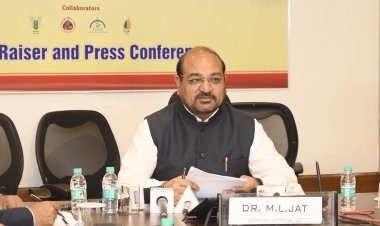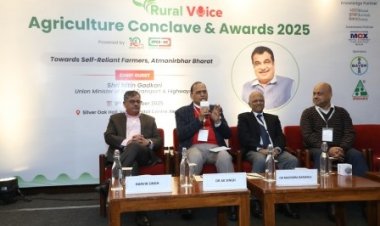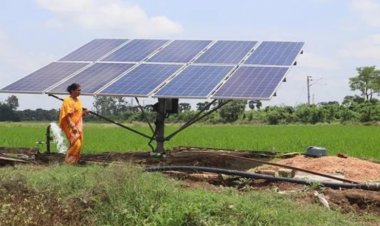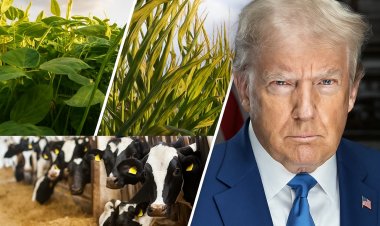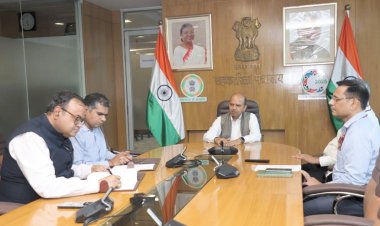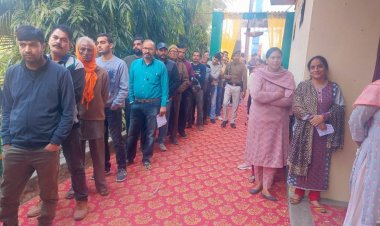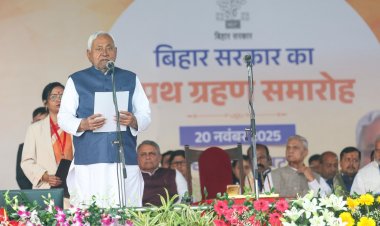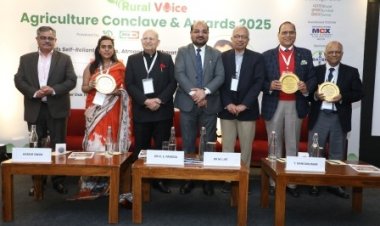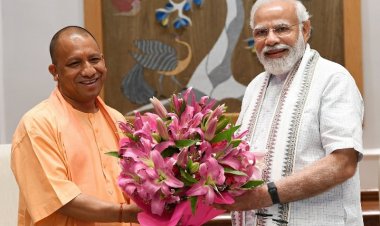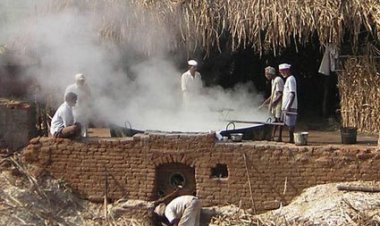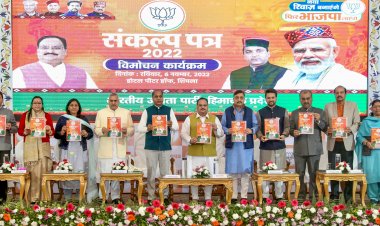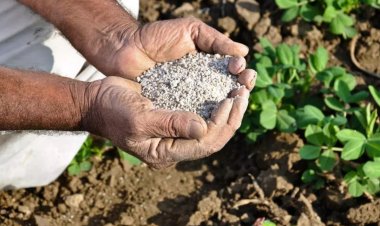The government on Wednesday unveiled one of its biggest jumps in capital spending in the past decade and said the fiscal deficit would fall next year, as it tries to create jobs while maintaining financial discipline.
As Prime Minister Narendra Modi's government faces Assembly elections in key states this year and Lok Sabha polls in 2024, it has been under pressure to create jobs in the country of 1.4 billion where many have struggled to get employment.
Finance Minister Nirmala Sitharaman in her Budget gave a rebate of income earned up to Rs 7 lakh, up from Rs 5 lakh earlier under new tax regime. The basic exemption limit in the regime has been raised to Rs 3 lakh, up from Rs 2.5 lakh earlier.
Also, the number of slabs under the new IT regime has now come down to 5 from 6. For taxable income up to Rs 3 lakh, there is no liability. For incomes between Rs 3-6 lakh, it is 5 per cent. For taxable income between 6-9 lakh, it is 10 percent. For taxable income between 9-12 lakh, it will be 15 per cent. For taxable income between 12-15 lakh, 20 per cent. and for those with income above Rs 15 lakh, 30 per cent.
India will lose Rs. 35,000 crore of net tax revenue after the Union Budget tweaked direct and indirect taxes to provide relief to the middle-income group, the Finance Minister said.
"Revenue of about Rs. 38,000 crore – Rs. 37,000 crore in direct taxes and Rs. 1,000 crore in indirect taxes – will be forgone while revenue of about Rs. 3,000 crore will be additionally mobilised. Thus, the total revenue forgone is about Rs. 35,000 crore annually," Sitharaman said, while announcing the Union Budget for the next fiscal year that starts April 1.
In a major announcement, the FM said that the new tax regime will now be the default tax regime, but citizens can still avail of benefits under old tax regime on opt-out basis.
"The Indian economy is on the right track, heading to a bright future. Our focus on reforms and sound policies resulting in Jan Bhagidari helped us in trying times, our rising global profile is due to several accomplishments," the FM said.
She added, "It would also be the first normal budget after the Covid pandemic and amid a global slowdown. The priority for Budget 2023 is thus expected to be to maintain a reasonably high but stable growth in the medium term. Alongside, to establish fiscal credibility with a suitable incremental reduction in the fiscal deficit to GDP ratio."
An agriculture accelerator fund is proposed to encourage agritech startups by young entrepreneurs in rural areas. Fund will focus on bringing innovative solutions for challenges faced by farmers.
The government will launch the Atmanirbhar Clean Plant Programme to improve availability of disease-free quality planting material for high-value horticultural crops at an outlay of Rs 2,200 crore.
PM Vishwa Karma Kaushal Samman - package of assistance for traditional artisans and craftspeople has been conceptualised, will enable them to improve the quality, scale and reach of their products, integrating with MSME value chain.
Sitharaman said the economic growth in the current year is estimated to be at 7 per cent. Stating that this is the first budget in Amrit Kaal, the Finance Minister said the vision for the Amrit Kaal includes technology-driven and knowledge-based economy with strong public finances, and a robust financial sector. The budget hopes to build on the foundation laid in the previous budget and blueprint drawn for India@100.
The Finance Minister announced that the Capital investment outlay will be increased by 33 per cent to 10 lakh crore rupees, which would be 3.3 per cent of GDP.
To spur investment in infrastructure, she said the government has decided to continue the 50-year interest-free loan to state governments for one more year to incentivise them for complementary policy actions, with a significantly enhanced outlay of 1.3 lakh crore rupees.
Focussing on the agriculture sector, Sitharaman said an Agriculture Accelerator Fund will be set-up to encourage agri-startups by young entrepreneurs in rural areas. The Fund will aim at bringing innovative and affordable solutions for challenges faced by farmers. The Finance Minister also announced that the agriculture credit target will be increased to 20 lakh crore rupees, with focus on animal husbandry, dairy and fisheries.
She said a plan will be implemented to set up massive decentralised storage capacity to help farmers store their produce and realise remunerative prices through sale at appropriate times. The year 2023 has been declared as the international year of millets.
The Finance Minister said the Indian Institute of Millet Research, Hyderabad will be supported as the Centre of Excellence for sharing best practices, research and technologies at the international level in order to make India a global hub for 'Shree Anna'.
Continuing with the commitment to ensure food and nutritional for the poor, Sitharaman said the government will bear an expenditure of about 2 lakh crore rupees to supply free food grain to all Antyodaya and priority households for the next one year under PM GaribKalyan Anna Yojana (PMGKAY). The scheme is being implemented from 1st January 2023.
Stating that traditional artisans and craftpeople have brought India renown for centuries, the Finance Minister said that for the time , a package of assistance under PM-VISHWAKARMA KAUSHAL SAMMAN has been conceptualised for them. The aim is to enable them to improve the quality, scale and reach of their products, integrating them with the MSME value chain.
In a further push for the government’s objective of housing for all, the Finance Minister said, an outlay for Pradhan Mantri Awas Yojana will be enhanced by 66 per cent to over Rs 79,000 crore.
With an aim to improve socio-economic conditions of the Particularly Vulnerable Tribal Groups (PVTGs), the Finance Minister announced that Pradhan Mantri PVTG Development Mission will be launched. An amount of Rs 15,000 crore has been earmarked for the implementation of the mission in the next three years.
Announcing relief for poor persons who are in prison and unable to afford the penalty or the bail amount, the Finance Minister announced that required financial support will be provided to them.
The Finance Minister announced that a central assistance of Rs 5,300 crore will be given to Upper Bhadra Project in “drought-prone” central region of Karnataka, to provide sustainable micro irrigation and filling up of surface tanks for drinking water.
Finance Minster has exempted excise duty on GST-paid compressed bio gas to avoid cascading of taxes on blended compressed natural gas. To further provide impetus to green mobility, customs duty exemption has been extended to import of capital goods and machinery required for manufacture of lithium-ion cells for batteries used in electric vehicles.
Government has provided relief in customs duty on import of certain parts and inputs like camera lens and continue the concessional duty on lithium-ion cells for batteries for another year to give boost to manufacturing of Mobile phones in the country.
Similarly, to promote value addition in manufacture of televisions, the Finance Minister reduced the basic customs duty on parts of open cells of TV panels to 2.5 per cent.
The government has exempt basic customs duty on denatured ethyl alcohol to support the Ethanol Blending Programme and facilitate our endeavour for energy transition.
The Finance Minister has increased the import duty on silver dore, bars and articles to align them with that on gold and platinum.
The basic customs duty rate on compounded rubber has been increased from 10 per cent to 25 per cent or Rs 30 per kg whichever is lower to curb circumvention of duty.
Government has hiked National Calamity Contingent Duty (NCCD) on specified cigarettes by about 16 per cent.
New co-operatives that commence manufacturing activities till 31st of March 2024 will get the benefit of a lower tax rate of 15 per cent, as is presently available to new manufacturing companies.
The move is aimed at realising Prime Minister’s goal of Sahkar se Samriddhi, and his resolve to “connect the spirit of cooperation with the spirit of Amrit Kaal.
The Finance Minister announced that a capital outlay of 2.40 lakh crore rupees has been provided for the Railways, highest ever outlay about 9 times the outlay made in 2013-14.
She also announced that one hundred critical transport infrastructure projects to be taken up on priority with investment of 75,000 crore, including 15,000 crore from private sources for last and first mile connectivity for ports, coal, steel, fertilizer, and food grains sectors. Fifty additional airports, heliports, water aerodromes and advance landing grounds to be revived for improving regional air connectivity.
An amount of Rs15,000 crore will be made available to implement the Mission in the next three years under the Development Action Plan for the Scheduled Tribes.
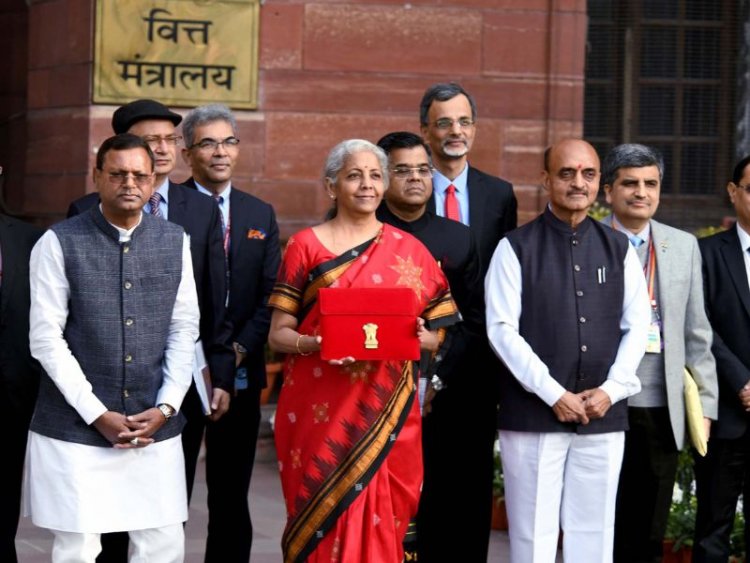



 Join the RuralVoice whatsapp group
Join the RuralVoice whatsapp group


















